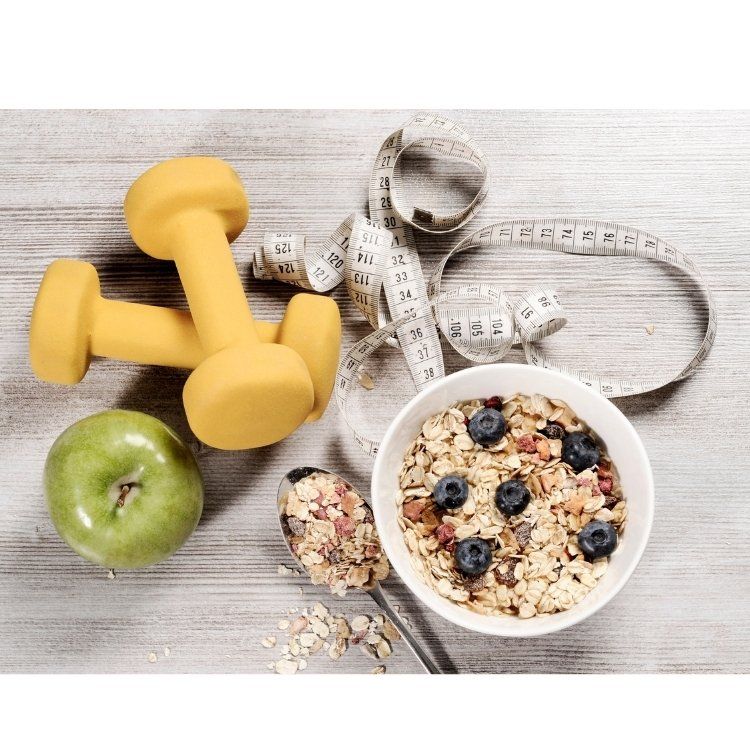Why Weight Loss Feels Impossible During Menopause – and What to Do About It
Weight loss menopause tips

If you’re in your 40s or 50s and wondering why the usual tricks no longer work when it comes to weight loss, you are definitely not alone. As a dietitian and somatic psychotherapist, I have had countless women sit across from me in my clinic frustrated, exhausted and feeling like their body is betraying them. And believe me, I get it – because I’ve been there too.
Let’s start by naming what so many women go through but rarely talk about openly: that weight gain during perimenopause and menopause is real. It’s not in your head. And more importantly – it’s not your fault.
Hormones Are Shifting – and So Is Your Metabolism
After your 40tees is not uncommon to have variable hormone levels. Low progesterone and high oestrogen are common as well as both sex hormones being low. It's a bit messy around this time and depending on how you managed your stress and how well your liver, adrenals and thyroid are performing will directly impact your menopausal journey. This can leave you feeling puffy and bloated, confused, irritable, depressed, anxious, sore, with foggy mind and an attention span of 2 seconds. In addition weight gain around the belly is not uncommon and this tends to be the time when things around your mid section will start to shift.
In your 50tees as oestrogen begins to decline, your body tries to hold onto fat even more, especially around the belly. Why? Because fat cells can produce oestrogen – and your body is trying to compensate. Add to this common changes to insulin sensitivity, cortisol from ongoing stress, nutrient deficiencies, toxicity and disrupted sleep and it's enough to make you feel mad and like you are riding a bloody roller coaster.
Joy.... Your metabolism slows and fat storage becomes easier, which means you need to work smarter and much differently with your body and mind than ever before. And I am sure you have already noticed that... things you have tried and worked in the past no longer do ... right ?
Emotional and Somatic Load... aka stress
Let’s not ignore the emotional weight you might be carrying too – whether it’s caring for family, managing a demanding career, or navigating changing roles and identity. All of this can show up physically. As a somatic therapist, I see how emotional suppression, chronic stress and disconnection from the body contribute to holding onto weight. The more you have shoved down your emotions because you were too busy, it was to hard or you didnt know how to handle it, these get stored in the body and manifest later as weight gain and disease. As such, when I work with my menopausal ladies we always work to offload and detox the old and stagnant emotions such that the body can truly find its balance and wellbeing. When the body feels heard, supported and nourished it will start cooperating with you and then in equal measure support your weight loss efforts.
You see lasting weight loss t’s not just about food or exercise, but it's in equal measure about feeling connected to your body, knowing how to regulate and nourish your body while having a safe and trusting partnership with it. Actively managing stress as well as negative thoughts and emotions is also needed along side a self care focused lifestyle.
So What Can You Do?
Here’s the good news: weight loss is still possible in menopause – it just requires a different approach. One that is more holistic, gentle and aligned with your changing body.
- Eat to regulate, not restrict: Focus on eating every 4-5 hours, consuming nutrient-dense whole foods like wholegrains, proteins and lots of vegetables. This will help balance your blood sugar, and reduce inflammatory triggers. Eat enough to feel satisfied and energised and ensure you supplement accordingly with products that meet your needs. A dietitian can help personalise what supplements and foods you should consume.
- Detox and cleanse: Chemicals are everywhere and a real reason why so many of us suffer. Aim to detox every 2-3 months under the guidance of a qualified dietitian.
- Support your nervous system: Breathing techniques, somatic movement, mindfulness and proper sleep hygiene can do more for your metabolism than any fad diet ever could. Stress reduction is key to navigate this time.
- Strength train: Your body needs resistance training now more than ever to support muscle mass and boost metabolism along side flexibility. Yoga and weights should become your friends during this time.
- Track your cycle or symptoms: Learn the rhythm of your body and support it with food, rest and movement accordingly.
- Give yourself grace: This is not just a physical transition. It is emotional, spiritual and deeply personal. learn how to listen, actively respond and fall in love with yourself rediscovering a new YOU. Your body is not broken. It is changing.
You do not have to hustle your way through this. There is another way. And if you are ready to try something that works with your body – not against it – I would love to support you through my personalised consultations. To book please visit www.ancavereen.com




